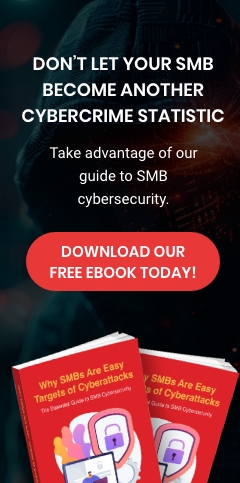More and more businesses are embracing Voice over Internet Protocol (VoIP) phone systems for their communication needs, enabling them to enjoy benefits such as flexibility and cost savings. However, there are still plenty of business owners who hesitate to make the switch due to security concerns. In this article, we’ll address common questions about securing both VoIP and traditional phone systems to help you decide if transitioning to VoIP is the right move for your business.
What are the key differences between securing traditional phone systems and VoIP systems?
VoIP and traditional phone systems require different security approaches due to their underlying technologies and how they operate.
Traditional phone systems use dedicated physical landlines, which makes them inherently more secure from digital threats. To compromise these systems, attackers typically need physical access to the phone lines, and the analog technology they use is less vulnerable to the types of cyberattacks that target internet-connected systems.
In contrast, VoIP systems operate over the internet, exposing them to many of the same risks faced by other online systems. This necessitates the use of security measures such as strong encryption protocols and firewalls.
What security risks do traditional phone systems typically face?
While traditional phone systems may seem more secure due to their physical infrastructure, they aren’t entirely without risk. The vulnerabilities that traditional phone systems face include:
- Physical tampering: Attackers who gain access to phone lines, wiring, or junction boxes can tap into conversations, intercept sensitive information, or even disrupt service.
- Wiretapping: Since traditional phone systems transmit analog signals, an intruder with access to the phone line can intercept conversations.
- PBX system hacking: Private branch exchange (PBX) systems, which are used to manage internal calls, can be targeted by attackers. If a PBX system is compromised, attackers can make unauthorized international or premium-rate calls, leading to high phone bills and potential financial losses. Attackers can also manipulate call routing, disrupt internal communications, or use the system for fraudulent activities.
What types of security risks does VoIP face?
Since VoIP systems rely on internet connections, they are vulnerable to cyberthreats such as:
- Caller ID spoofing: Cybercriminals can manipulate VoIP caller IDs to impersonate trusted contacts, potentially leading to scams or fraud.
- Eavesdropping: VoIP transmits voice data over the internet in packets, which can be intercepted by cybercriminals if proper security measures aren’t in place. They can then access private conversations, potentially exposing sensitive information.
- Denial-of-service attacks: Cybercriminals can overwhelm a VoIP system with traffic, causing the network to crash and interrupting your business operations.
- Ransomware: A cybercriminal could infect the VoIP infrastructure and demand ransom to restore service. A ransomware attack can disrupt communications and cripple a business until the issue is resolved.
What security measures are needed to protect traditional and VoIP phone systems?
To secure traditional phone systems, businesses primarily focus on:
- Controlling physical access to phone lines and equipment to prevent unauthorized tampering
- Securing PBX systems by changing default passwords and updating security settings to block potential intrusions
- Monitoring usage patterns to detect any suspicious activity or unauthorized calls
In contrast, securing VoIP systems requires a more comprehensive cybersecurity approach, which includes:
- Encryption to scramble voice data during transmission, making it difficult for unauthorized parties to intercept and listen in on conversations
- Firewalls and intrusion prevention systems to detect and block malicious traffic before it reaches the VoIP system
- Regular software updates to patch vulnerabilities in VoIP hardware and software, ensuring the system is up to date and secure
- Secure access controls to limit system access and changes to authorized personnel only
- Network segmentation to isolate VoIP traffic from other internet activities, reducing exposure to potential attacks
Which is the better choice for your business?
The choice between VoIP and traditional phone systems depends on your business's specific needs and priorities. Traditional phone systems offer inherent security advantages because of their physical infrastructure, making them less susceptible to digital attacks. However, they are not without risks.
On the other hand, VoIP systems, though more exposed to internet-based threats, can be highly secure when properly configured and protected by modern cybersecurity practices. If your business relies on cloud-based tools and internet-driven operations, a well-secured VoIP system offers greater flexibility, scalability, and advanced features without compromising security.
Not sure which phone system is best for your business? Our IT experts are here to assess your needs and recommend a secure, efficient solution tailored to your requirements. We’ll guide you through the entire implementation process, ensuring a smooth transition. Connect with us today.



